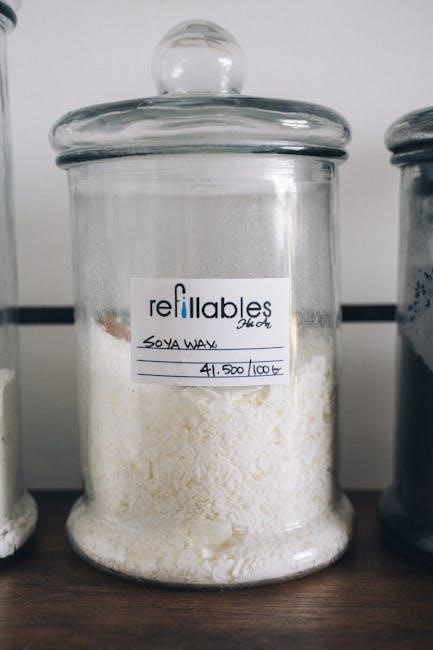White Label Agreement PDF: An Overview
A White Label Agreement PDF is a legally binding document outlining the terms between a supplier and a reseller, enabling the resale of products or services under the reseller’s brand․ It ensures clarity on licensing, branding, and distribution rights, protecting both parties’ interests while fostering a collaborative business relationship․
Definition and Purpose
A White Label Agreement PDF is a customizable contract that defines the relationship between a supplier and a reseller, allowing the reseller to market and distribute products or services under their own brand․ Its primary purpose is to establish clear terms, including licensing rights, branding permissions, and distribution guidelines․ This agreement ensures both parties understand their responsibilities and obligations, protecting intellectual property while enabling collaboration․ It serves as a legal framework to facilitate mutually beneficial business partnerships, ensuring transparency and accountability throughout the agreement’s duration․
Key Components of a White Label Agreement
A White Label Agreement PDF typically includes several essential components to ensure clarity and legality․ These include definitions of the parties involved, a detailed description of the products or services being white-labeled, and the scope of the licensing rights granted to the reseller․ It also outlines payment terms, such as fees or royalties, and the duration of the agreement․ Additionally, the agreement addresses intellectual property rights, termination clauses, and the responsibilities of both the supplier and the reseller․ Confidentiality and non-disclosure clauses are often included to protect sensitive information․ Together, these components form a comprehensive framework that governs the partnership and ensures compliance with legal standards․

Advantages of a White Label Agreement for Suppliers
A White Label Agreement allows suppliers to expand their market reach while minimizing branding and distribution costs, enabling them to focus on production and scalability․
Market Expansion Opportunities
A White Label Agreement enables suppliers to expand their market reach by partnering with resellers who can distribute products to new regions or customer segments․ This collaboration allows suppliers to leverage the reseller’s established network, increasing brand visibility and sales without significant investment in new infrastructure․ By focusing on production, suppliers can cater to a broader audience, enhancing scalability and growth potential․ This mutually beneficial arrangement ensures that both parties achieve their business objectives efficiently, fostering long-term partnerships and market penetration․ The agreement simplifies entry into new markets, making it easier for suppliers to capitalize on untapped opportunities and diversify their customer base globally․
Cost-Effective Branding and Distribution
A White Label Agreement allows suppliers to minimize branding and distribution costs by leveraging the reseller’s existing infrastructure and marketing efforts․ This arrangement eliminates the need for suppliers to invest in costly branding initiatives, enabling them to focus on product development and quality․ Resellers handle distribution, reducing logistical expenses and ensuring products reach a wider audience efficiently․ This cost-effective model benefits suppliers by maximizing profitability while maintaining product consistency and brand reputation․ It also ensures that customers receive high-quality products, fostering trust and satisfaction in the reseller’s brand․ This streamlined approach makes it easier for suppliers to scale operations without incurring additional overhead costs․

Advantages of a White Label Agreement for Resellers
A White Label Agreement enables resellers to market high-quality products under their brand, enhancing credibility and customer trust without the need for product development․
Customizable Product Offerings
Customizable product offerings are a cornerstone of white label agreements, allowing resellers to tailor products to their brand identity․ This feature enables resellers to differentiate themselves in competitive markets by aligning the product’s appearance, functionality, and messaging with their target audience’s preferences․ The agreement typically grants the reseller the freedom to modify packaging, logos, and marketing materials while maintaining the product’s core functionality provided by the supplier․ This flexibility not only enhances the reseller’s brand consistency but also empowers them to cater to specific customer needs, ultimately driving sales and customer satisfaction․ Such customization options are a key attraction for businesses entering white label partnerships․
Enhanced Brand Credibility
A white label agreement allows resellers to market high-quality products under their own brand, enhancing their credibility and trustworthiness․ Customers perceive the products as originating from the reseller, fostering brand loyalty and strengthening their market reputation․ Consistent delivery of branded, superior-quality offerings reinforces the reseller’s image as a reliable provider․ Additionally, the agreement ensures the supplier maintains product quality, further bolstering the reseller’s credibility․ This partnership enables resellers to focus on branding and customer relationships while leveraging the supplier’s expertise, ultimately building a trustworthy and professional image in the marketplace․

How to Create a White Label Agreement
Define the scope, terms, and obligations between supplier and reseller․ Outline licensing rights, branding guidelines, payment terms, and termination clauses․ Ensure compliance with legal standards and finalize the document․
Drafting the Contract
Drafting a white label agreement requires clear definitions of the scope, terms, and obligations for both parties․ The contract should outline the purpose of the agreement, licensing rights, payment terms, and termination clauses․ Include specific details about branding guidelines, product or service specifications, and intellectual property rights․ Ensure compliance with legal standards and address potential disputes․ The language should be precise to avoid ambiguity, protecting both the supplier and reseller․ Include clauses on confidentiality, non-exclusivity, and warranty disclaimers if applicable․ The draft should be comprehensive yet concise, ensuring all aspects of the partnership are legally enforceable and mutually beneficial․ Legal review is essential before finalization․

Legal Review and Negotiation
Legal review and negotiation are critical steps in finalizing a white label agreement․ Both parties should engage legal counsel to ensure the contract complies with relevant laws and protects their interests․ Negotiations focus on terms like payment structures, licensing fees, and termination conditions․ Each party’s responsibilities, such as branding rights and distribution channels, must be clearly defined․ Legal teams review clauses to prevent ambiguities and potential disputes․ Negotiations also address intellectual property rights and warranty disclaimers, ensuring both parties understand their obligations․ This step ensures the agreement is legally sound and aligns with both businesses’ objectives, fostering a fair and enforceable partnership․ Legal review and negotiation are essential for a smooth collaboration․
Finalizing the Agreement

Finalizing a white label agreement involves both parties reviewing and approving the document to ensure all terms are agreed upon and legally binding․ Once the legal review and negotiations are complete, the agreement is signed by authorized representatives from both sides․ This step ensures that all terms, including licensing, branding, and distribution rights, are officially accepted․ The finalized agreement is then distributed to both parties for their records․ This step is crucial as it formalizes the partnership and provides a clear framework for the collaboration․ Finalizing the agreement ensures that both parties are legally protected and can proceed with confidence in their business relationship․

Termination Clauses in a White Label Agreement
Termination clauses in a white label agreement outline the conditions for ending the contract and post-termination obligations, protecting both parties’ interests and ensuring a smooth process․
Conditions for Termination
Conditions for termination in a white label agreement specify the circumstances under which either party can end the contract․ Common triggers include material breaches of terms, failure to meet obligations, or non-payment․ The agreement often outlines notice periods, requiring one party to notify the other of intent to terminate․ Mutual agreement or insolvency of a party may also serve as valid grounds․ These clauses are detailed to prevent disputes and ensure clarity․ They may also specify the effects of termination, such as cessation of licensing rights or return of materials․ Clear termination conditions protect both suppliers and resellers, ensuring fair resolution if the partnership ends․
Post-Termination Obligations
Post-termination obligations outline responsibilities that continue after the agreement ends․ These may include the reseller ceasing use of the supplier’s trademarks, returning confidential materials, and destroying any remaining products or marketing materials․ Suppliers may be required to stop supplying goods and services․ Both parties must often refrain from soliciting each other’s employees․ Financial obligations, like final payments or refunds, are typically addressed․ These clauses ensure an orderly transition, minimizing potential disputes and protecting intellectual property rights․ Compliance with these obligations is crucial for maintaining professional relationships and avoiding legal complications post-termination․

Future Trends in White Label Agreements
Future trends include increased adoption of digital tools, automation, and SaaS models, enhancing efficiency and scalability in white label partnerships, ensuring seamless branding and distribution processes․
Digital Transformation and SaaS Models
Digital transformation is reshaping white label agreements, with Software-as-a-Service (SaaS) models becoming increasingly prevalent․ These models allow resellers to rebrand and distribute software seamlessly, streamlining operations and enhancing scalability․ Automated workflows, real-time monitoring, and data analytics tools are integral to modern SaaS platforms, enabling efficient management of white label partnerships․ Additionally, cloud-based solutions reduce infrastructure costs and improve accessibility, making it easier for businesses to adopt white label agreements globally․ This shift toward digital solutions not only accelerates time-to-market but also fosters greater collaboration between suppliers and resellers, ensuring a win-win scenario for all parties involved in the agreement․